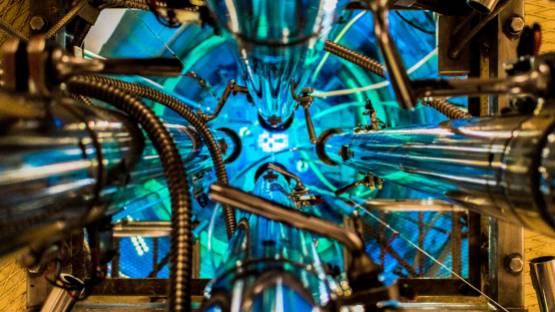A new IAEA-facilitated network of research reactors and related institutions will help meet growing demand in the Latin American and the Caribbean region for the analytical and technological services of research reactors, as well as for the radioisotopes and radiopharmaceuticals they produce. The Regional Network of Research Reactors and Related Institutions in Latin America and the Caribbean (RIALC) was launched both virtually and in Vienna on 28 February in the presence of representatives from Argentina, Bolivia, Brazil, Chile, Colombia, Cuba, Jamaica, Mexico and Peru.
The nine countries are taking part in a regional IAEA technical cooperation project set up in response to increased demand for the products and services of nuclear research reactors. Such reactors are used for research and development, education and training. In addition, they are used to produce neutrons for use in sectors ranging from medicine and agriculture to industry and forensics. Because of their important role in research and development, many research reactors are located on university campuses and in national institutions, where a significant community of stakeholders can benefit from their applications.
“This project seeks to strengthen existing capacities in the region, building on the experience of its professionals and technicians, and maximizing the use of their skills and the important equipment and infrastructure of which the research reactors are a central element," said Raúl Ramírez, Section Head at the IAEA’s Technical Cooperation Division for Latin America and the Caribbean. “We are focusing on satisfying demand in the region for research reactor products and services to the greatest extent possible. For this, it is essential to have a platform for the exchange of information, and this is why this network has been set up.”
Seven countries in Latin America and the Caribbean have research reactors of different types and power. For more than 70 years, these facilities have been centres of production and innovation for nuclear science and technology, thanks to their contribution to multidisciplinary research. This has included new developments in the production of radioisotopes for medical and industrial uses, research with neutron beams, materials development, component testing and qualification. In total, there are 16 operational research reactors in the region (five in Argentina, four in Brazil, two each in Mexico and Peru; and one each in Chile, Colombia and Jamaica) with a further three under construction in Argentina, Bolivia and Brazil. The RIALC Network seeks to provide a forum where professionals working in these facilities can share information, coordinate efforts, and promote their services and products, with the goal of supporting efficient and effective solutions for the health, environment, industry and medical sectors.
“The IAEA has supported the creation of several regional networks of research reactors, some of which have a very important role in coordinating collaborative actions related to access to and use of research reactors,” said Nuno Pessoa Barradas, Research Reactor Specialist at the IAEA. “RIALC is the first network of its kind that covers the entire Latin American and Caribbean region. With the commitment of its members, we hope that it will significantly contribute to improving the sustainability and utilization of the region's research reactors.”
The launch of the new network was a milestone in an ongoing regional project aimed at meeting regional demand for products and services relating to nuclear research reactors. It was attended by authorities from RIALC's counterpart institutions, including Adriana Serquis, president of the National Atomic Energy Commission of Argentina, Hortensia Jiménez, president of the Bolivian Nuclear Energy Agency, Gladys López, president of the Nuclear Energy and Advanced Technologies Agency of Cuba, and Mario Mallaupoma, recently appointed president of the Peruvian Nuclear Energy Institute (IPEN). Carlos Gayoso, lead coordinator of the project and Director of Production at IPEN, also attended.






